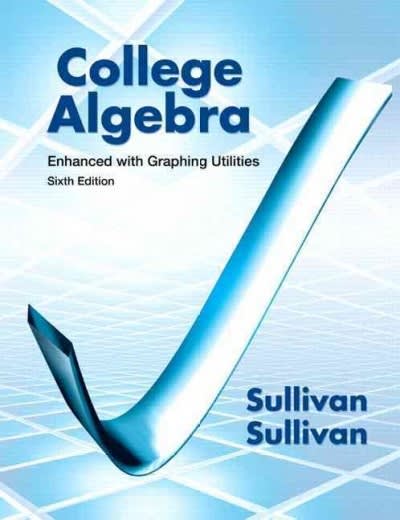Question
Suppose a state is considering whether to require all public school teachers to have a master's degree. Currently, only 40 percent of the teachers in
Suppose a state is considering whether to require all public school teachers to have a master's degree. Currently, only 40 percent of the teachers in the state have such a degree.
a. A researcher conducts a cross-sectional analysis comparing test scores of students in the state whose teachers have master's degrees to the test scores of students whose teachers do not. The researcher finds that students whose teachers have master's degrees score significantly higher on standardized tests. Why might such a study be biased?
b. Now, suppose another state conducted an experiment in which 500 students were randomly
selected to be either in a class taught by a teacher with a master's degree (treatment group) or a class with a teacher without a master's degree (control group).
This experiment found that the treatment group scored significantly better than the control group. How practical is this experiment in informing the state's decision about whether to have a master's degree requirement?
Step by Step Solution
There are 3 Steps involved in it
Step: 1

Get Instant Access to Expert-Tailored Solutions
See step-by-step solutions with expert insights and AI powered tools for academic success
Step: 2

Step: 3

Ace Your Homework with AI
Get the answers you need in no time with our AI-driven, step-by-step assistance
Get Started


